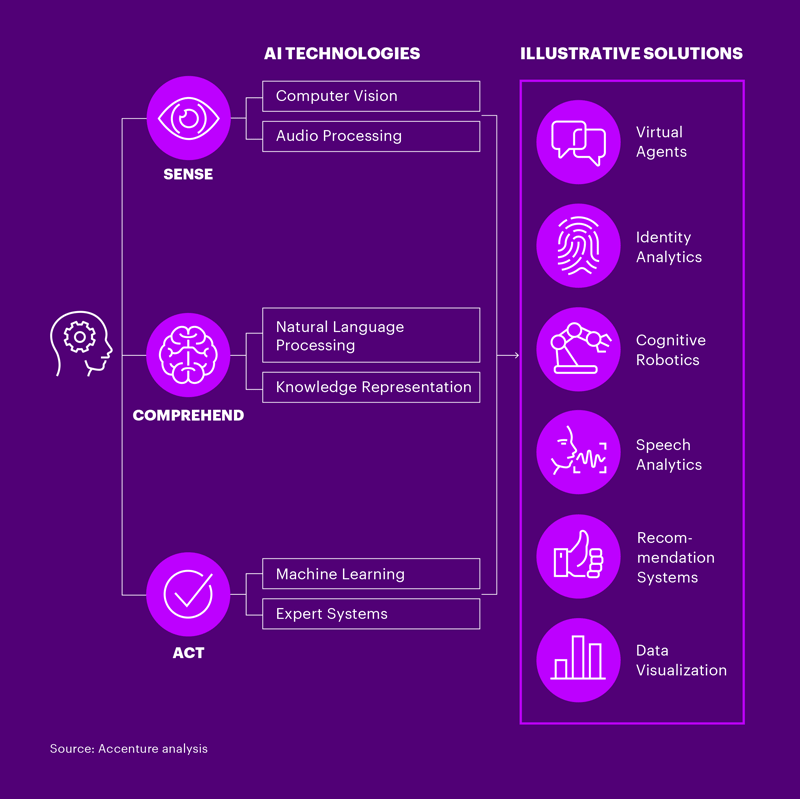
22nd May 2018 AI will add $400bn to Middle East economies by 2035 Artificial intelligence (AI) could add $182bn to the United Arab Emirates (UAE) economy and $215bn to Saudi Arabia by 2035, according to a new report from Accenture.
The report looks at 15 industries in the UAE and 13 in Saudi Arabia to determine the potential sector-specific impacts across the Middle East. The research finds that in the UAE, AI will have the greatest impacts on financial services, healthcare, and transport/storage, with increases of $37bn, $22bn and $19bn, respectively, in their annual gross value added (GVA), which measures the output value of all goods and services in a sector. Even labour-intensive sectors – such as construction and education – will see an increase of $8bn and $6bn, respectively, over the same period, with AI enabling people to be more productive, thus leading to gains in profitability. The effects of AI will be similarly dramatic in neighbouring Saudi Arabia, where it is expected to increase GVA by $215bn. Previous research by Accenture has shown that, globally, AI could boost profitability by an average of 38%, leading to an economic boost of US$14 trillion by 2035. “These nations’ leaders already understand the impact of this powerful technology, evidenced by the appointment of the UAE's first Minister of AI last year," said Amr Elsaadani, managing director of Accenture’s Financial Services practice in the Middle East and Turkey. The UAE also launched an initiative last November that aims to train 100,000 young Arabs in coding AI, to develop the software and development skills needed for the coming decades. Meanwhile, Saudi Arabia has announced a $500bn megaproject called 'Neom'. Part of the country's "Vision 2030", this will be a fully automated smart city powered by renewable energy that features driverless cars, AI-controlled vertical farms and robots outnumbering people.
“While AI-led growth will be felt across a wide variety of industries, the financial services sector has the most to gain – which isn’t surprising, given that many of its jobs can be significantly augmented with AI and machine learning. In addition, Accenture reports have already shown that banking executives globally are taking action to transform their businesses through the use of AI,” said Elsaadani. The report identifies five key strategies for policy makers to consider: • growing the local talent pipeline using AI; • advocating for a code of ethics for AI; • becoming a global testbed for social AI; • preparing the next generation of workers for the AI future; and • minimising the impact of labour market dislocation.
Comments »
If you enjoyed this article, please consider sharing it:
|









